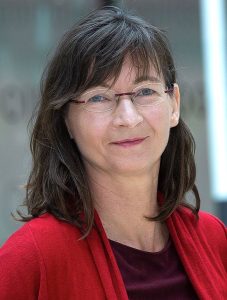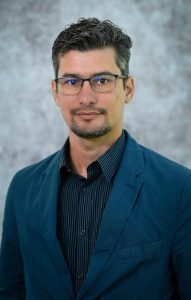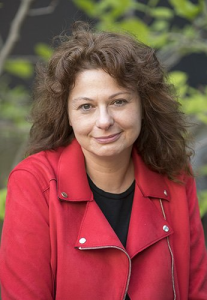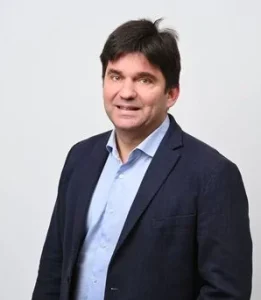Meike Klettke
(University of Regensburg, Germany)

Keynote Title: Evolution of Relational Databases, NoSQL and Graph Databases
Keynote Slides: Keynote_SPL_2025_final
Keynote Abstract: The methods for the design and evolution of database systems were developed independently of software development and software product lines. However, these two areas overlap in all real-world applications, interact with each other, and must be coordinated. This talk gives an overview of database evolution methods for different data models, from relational databases to JSON documents to graph databases. For relational database systems, the available evolution operations to extend or modify relations and database constraints will be shown. NoSQL databases (JSON and graph databases) bring three additional characteristics that must be considered in the evolution: i) these databases can be schema-less, ii) unlike relational data, they have a more complex data model, and iii) NoSQL data can include not only structured data, but also heterogeneous data. The resulting evolution methods for all these data models will be introduced and potential interactions with SPLs will be outlined.
Bio: Meike Klettke is a Full Professor at the University of Regensburg, Germany and since 2022 Research Dean of her faculty. She earned her PhD in Computer Science at the University of Rostock in 1998 and her Habilitation in 2007 at the same university. Her current research focuses on NoSQL and graph database evolution, evolution in data engineering processes, monitoring and profiling in non-relational databases, and schema and constraint extraction from data. She authored numerous publications in international conferences, workshops and journals on these subjects, including IEEE Transactions on Knowledge and Data Engineering, EDBT, SIGMOD, CAiSE, ER conference, MoDELS conference and VLDB workshops. She is speaker of the database group of the German Informatics Society since 2022.
Wesley K. G. Assunção
(North Carolina State University, USA)

Keynote Title: The Future of Software Engineering is in your hands, and I believe in you!
Keynote Slides: [slides]
Keynote Abstract: Software engineering has been a crucial discipline to support the advancement of our modern world, since software systems power all segments of society. This is possible due to the development of the discipline in the last decades, to a state in which we have qualified people (software engineers, practitioners, and researchers), proper processes, and cutting-edge technologies. To achieve this current state, the discipline of software engineering has been advanced by private companies, open-source communities, government agencies, and universities. What do all those different institutions have in common? They have talented, smart, and creative people. The doctoral degree is the highest academic degree, focusing on educating and preparing talented, smart, and creative people. While the discipline of software engineering has seen great development, the new demands from society and the emergence of new technologies (e.g., generative artificial intelligence, quantum computing, Internet of Things) create new challenges and uncover old ones. In this context, the current generation of doctoral students will be in charge of taming such new technologies to meet the demands for the benefit of humanity. Given this crucial role of doctoral students in the future of software engineering, we need to discuss what the expectations, responsibilities, benefits, and barriers are faced by a doctoral student. In this talk, I share my experiences as a software developer, doctoral student, post-doc researcher, and professor directly working with software engineering in the past 20 years. This talk aims to inspire and guide students as they navigate the complexities and milestones of their doctoral studies. The topics of talk involve collaboration with your pairs, publication of your work results, understanding your community (e.g., researchers and practitioners working on the domain of variability and systematic reuse), what students should do and what they should not do, and some provocative discussion to motivate critical thinking by the audience. After the talk, the students will be equipped with practical suggestions and advice so that they can avoid pitfalls, recognize good opportunities to grow, and plan their future careers.
Bio: Wesley K. G. Assunção is an Associate Professor with the Department of Computer Science at North Carolina State University, USA. Previously, Wesley was a University Assistant in the Institute of Software Systems Engineering at Johannes Kepler University Linz, Austria (2021-2023); a Postdoctoral Researcher at Pontifical Catholic University of Rio de Janeiro, Brazil (2019-2023); and an Associate Professor at Federal University of Technology – Paraná, Brazil (2013-2020). He obtained his MSc (2012) and PhD (2017) in Computer Science from Federal University of Paraná also in Brazil. His main research interests are software modernization, variability management, software quality, model-driven engineering, collaboration in systems engineering, software testing, and application of AI/ML to support software development. Wesley has collaborated with industries, government agencies, practitioners, and researchers from several countries, such as Brazil, Austria, USA, Spain, Canada, Germany, and France. He is currently co-editor of the In Practice track at the Journal of Systems and Software and has also been serving as reviewers for multiple conferences and journal, and as organizer of conferences, symposiums, workshops, competitions, and meetings. Further information: https://wesleyklewerton.github.io
Marsha Chechik
(University of Toronto, Canada)

Keynote Title: Assuring Product Lines of Complex Systems
Keynote Slides: Keynote Slides
Keynote Abstract:Assuring the reliability of complex systems is a difficult and expensive undertaking. These costs are further exacerbated when a family of similar products with varying features need to be assured, or when products evolve due to changing requirements or to introduce new functionalities. In this talk I will discuss methods for assuring reliability of such systems, from their representation as product lines to their efficient analysis to methods for building and maintaining assurance cases for such systems using templates.
Bio: Marsha Chechik is Professor and former Chair in the Department of Computer Science at the University of Toronto, where she holds Bell University Labs Chair in Software Engineering. In 2022, she served as Acting Dean in Faculty of Information. Her research interests are in the application of formal methods to improve the quality of software. She has co-authored numerous papers in formal methods, software specification and verification, computer safety and security, and requirements engineering. She is a member of IFIP Working Group 2.9 on Requirements Engineering, an Associate Editor-in-Chief of IEEE Transactions on Software Engineering and Associate Editor-in-Chief of Journal on Software and Systems Modeling. She has been Program Committee Chair of top software engineering and verification conferences: ASE’14, ESEC/FSE’21, TACAS’16, ICSE’18, FM’23, MODELS’24. She is Fellow of ACM, Fellow of Automated Software Engineering and Chair of ACM SIGSOFT.
Manuel Wimmer
(Keynote for MODEVAR-Re:Volution Workshops)

Keynote Title: Variability Modeling for and with Digital Twins
Keynote Abstract: Due to the vast usage and importance of cyber-physical systems as a backbone of our society, the design, realization, operation, and maintenance of such systems are becoming more and more challenging. As an answer, digital twins are emerging in many domains and are gaining attention to support different phases of the system lifecycle such as design-space exploration, runtime adaptation, and predictive maintenance. While benefits of using digital twins are already demonstrated for different domains, the systematic development and operation of digital twins which represent complex software systems are still major challenges, especially when support for different variants and versions is required.
Bio: Manuel Wimmer is full professor and head of the Institute of Business Informatics – Software Engineering at the Johannes Kepler University Linz, Austria. His research interests comprise foundations of software engineering and their application in various fields such as cyber-physical systems, quantum computing, and digital twins. He serves as associate editor for IEEE Transactions on Software Engineering, Software and Systems Modeling, and Business & Information Systems Engineering. He served as program co-chair for several conferences (e.g., QSW 2025, ICWE 2023, MODELS 2022, FASE 2022, SEAA 2020, ICMT 2015) and as general co-chair for SE 2024 and MODELS 2024. Currently he is co-organizing the 2nd International Conference on Engineering Digital Twins (EDTconf 2025). For more information, please visit: https://www.se.jku.at/manuel-wimmer
